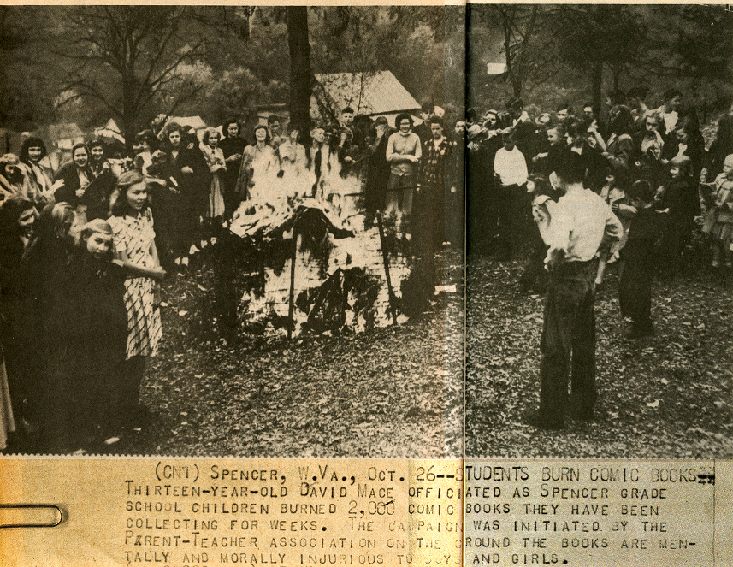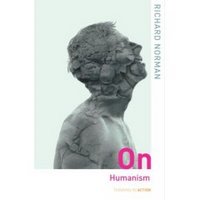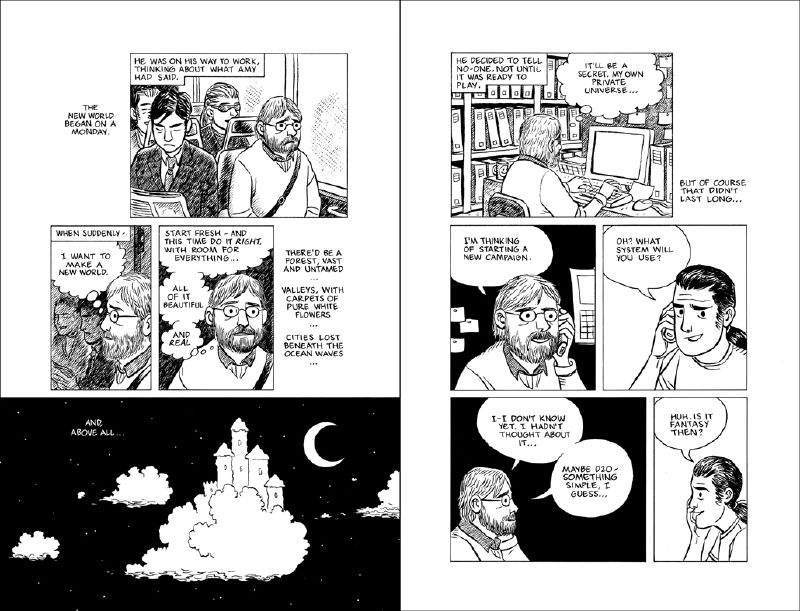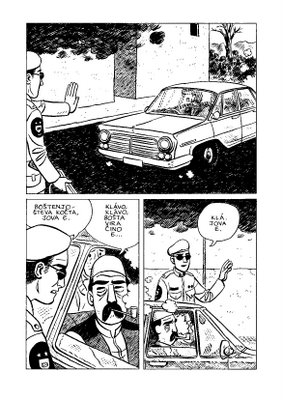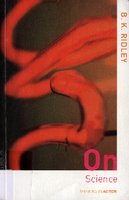
Been reading this book:
On Science by B.K.Ridley, as part of the thinking I've been doing after
Are Angels OK. Y'know: science, art, religion, truth, fiction, all that stuff. What's it all for, etc etc...
This particular book is interesting - he talks about the roots of modern science in magic (as explored by Bacon, Newton, etc) and is keen to demonstrate the limits of the scientific method. He quotes Francis Bacon:
That the sense of man carrieth a resemblence with the sun, which (as we see) openeth and revealeth all the terrestrial globe; but then again it obscureth and concealeth the stars and celestial globe; so doth the sense discover natural things, but it darkeneth and shutteth up divine.
Indeed. But it's a frequently frustrating book for me, for a number of reasons. For one thing, it's a piece of polemic, aimed largely (I suspect) at Ridley's fellow scientists. He's pointing out to them that science has its limits, and there are areas the scientific method can't really help us with. Which is where the humanities, art and spirituality come in - and what he calls 'natural magic'.
I don't really know precisely where he's coming from - maybe he's a physicist who also believes in God. Maybe not. But I have to say I can't share his dewey-eyed enthusiasm for 'artistic truth'. For example:
We are generally interested in understanding the physical world, in the behaviour of our fellows, in art and in God; and as a consequence, there exist the scientific, the ethical, the aesthetical and the religious perspectives. Our aim is to discover interesting scientific truths, interesting ethical truths, interesting aesthetical truths and interesting religious truths. Evidently there is no such thing as Truth with a capital T without any subscript; there is only truth(sci), truth(eth), etc.
Oh, please! What the fuck is an aesthetical truth? Not to mention an ethical one? I suppose I should have seen this coming, when he scornfully rejected postmodernist relativism early on in the introduction. Ridley seems to want us to accept that the humanities, art and religion can reveal
truths about existence that the scientific method cannot - and that these truths are equally valid and important. It would be nice to think so, I guess, and as Picasso is supposed to have said: "art is a lie that tells the truth."
Well, maybe. Or maybe truth doesn't enter into it. Maybe it's just a lie...
So where does that leave us? With reality - the one gradually uncovered by scientists. No God, I'm afraid. And no 'aesthetic truths' either. Which, frankly, can be a bit disappointing...
It's funny, as a life-long atheist, to find myself grappling with this vague yearning for something more than the material reality described by science. I think when I was younger, the realisation that there really
is nothing more was exciting enough - it put fire in my belly, gave me the conviction of a powerful truth, etc.
Now, though, I keep thinking about just why I've always been into fantasy - and why as a kid I was obsessed with UFOs, parapsychology, etc. And I'm becoming increasingly aware that the truth about the universe can be - well - disappointing...
I love this line from an essay by Lyell Henry on 'pseudoscience', which I found in a book by Brenda Denzler called
The Lure of the Edge: Science, Religion and the Pursuit of UFOs:
[The work of pseudoscientists] might be interpreted as efforts to re-enchant the world through science. They would bring back into science's ken the monsters, giants, wee people, dread cataclysms... that once upon a time were exorcised from science and by science. There is, in other words, a fascinating apparent effort to be "for" science and yet, at the same time, against the "impoverishing" impact of science on our modern world view.
Now, when I read this, all kinds of bells went off. I realised that this is indeed a big part of my childhood obsession with UFOs, 'world mysteries', parapsychology, etc. And also a big part of what draws me to fantasy, and indeed to all kinds of fictional realities (in art, comics, stories, roleplaying games, etc). Most of my own comics (and roleplaying games!) are, in a sense, all about doing precisely this. But of course, I know they're just that:
fictional realities. I mean - I'd love to really, truly believe in magic (as Tim Hunter might say). But I don't.
So where does this leave art (let alone fiction)? When art presents the universe as suffused with (and motivated by)
meaning, when it implies some kind of meta-narrative to the way the world works, when - in short - it attempts to
"re-enchant the world" - doesn't that make it
a lie that tells a lie?
I guess I would like Ridley to convince me otherwise. He hasn't yet. We'll see if the last few chapters make a convert of me...
By the way, I recently gave a talk about all this, called 'Physics Engines and Narrative Machines,' at Auckland University's Winter Writers Week. And I'll be doing another in September, at
Going West (with physicist, poet and fellow roleplaying gamer
Tony Signal), which I'm looking forward to quite a bit. I guess this stuff will continue to filter its way through my work in various ways...
